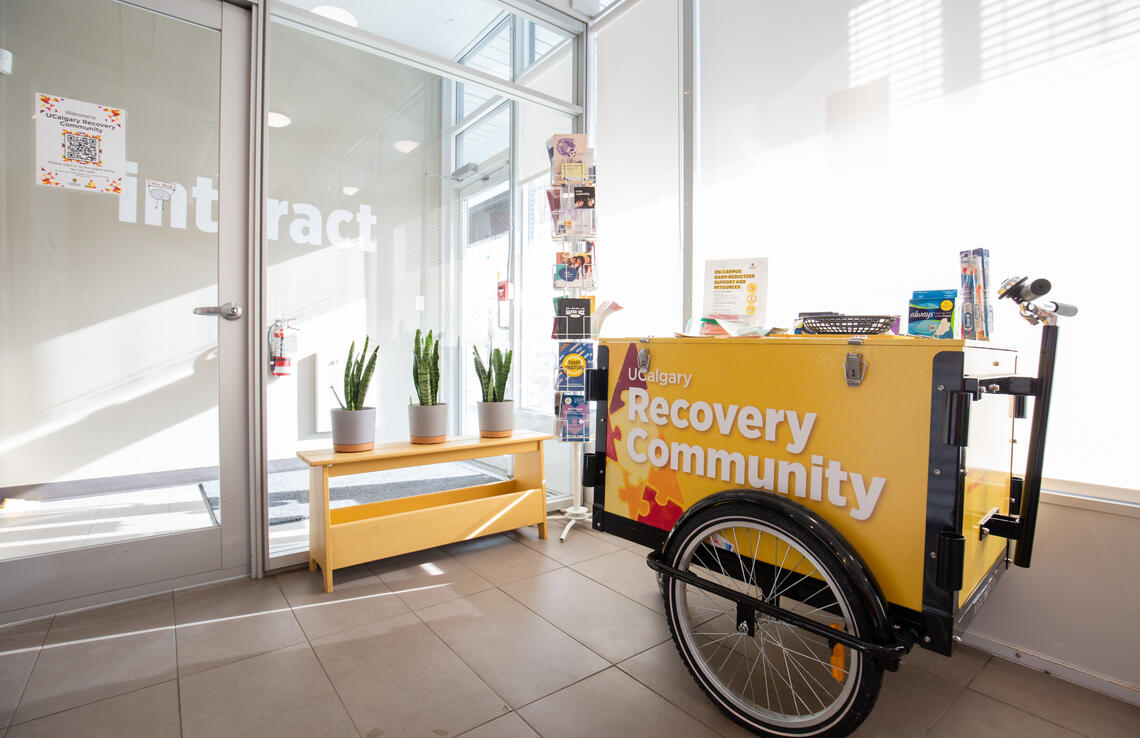
Mental health initiatives and supports available for the campus community
By Julianna Keskic, October 22 2024—
October is upon us — the weather is turning colder, the days are getting shorter and the academic workload is getting heavier. During this time when stress levels are rising and Seasonal Affective Disorder — colloquially known as seasonal depression — is seemingly running amok through the campus community, knowing the mental health supports on campus is crucial.
In an interview with the Gauntlet, Andrew Szeto, director of the University of Calgary Mental Health Strategy, professor in the Department of Psychology and member of the Mathison Centre for Mental Health Research and Education, and Meg Martin, the senior director of Student Wellness and Accessibility Services, spoke about mental health awareness and the programs and services provided by the university for students.
Meg Martin — who is an expert on the specific supports provided by wellness services and is a member of the team at the Sexual and Gender Based Violence Prevention and Support Office — explained the services and supports offered for students in more detail.
“On the medical side of things, we have primary care physicians, and a psychiatrist which can be accessed by going through a primary care physician. The primary care physicians can do all the regular things in terms of prescribing mental health related medications,” Martin said.
Martin further elaborated that while medical care is just one portion of the mental health supports provided through the university, there are more extensive services as well.
“Peer support with well trained peer listeners is a really good option. They’re in the Wellness Centre every day, but then they’re also located out of a number of other different units. The Women’s Resource Centre would be one example. Peer listeners are for people who need to walk in and speak to somebody who can listen to an issue and who do not necessarily require counseling,” Martin said.
Martin highlighted another facet of support offered through— Mental Health Strategy (MHS) — the student support advisors, who provide general support as well as support specifically for Indigenous students, students living in residence and neurodiverse students.
“Student support advisors offer generalized support or specified supports dependent on the individual. These advisors are [generally] registered social workers,” Martin said. “Neurodiversity support advisors have walk-in hours a couple of times a week, and so appointments can be booked with them as well, but we know that for lots of folks, it’s just a little bit easier to access those walk-in hours from 2 pm to 4 pm, three days a week. We also have] a harm reduction advisor, so for folks that are struggling with substance use/relationship with substances that is available too,” Martin added.
Next, Martin discussed the counseling services offered on campus and how student counseling services are structured.
“We have counseling support, that is with therapists. It’s generally a brief model with a few scheduled sessions, but we do also have same day counseling available for folks that need it right away. The councilors are generally master’s level or PHD. level. So either social workers or registered psychologists,” Martin said.
Szeto provided a more general overview of the Mental Health Strategy Office and discusses UFlourish, one of the major events that is being run by the MHS office this month.
UFlourish is a series of events and workshops on various topics about mental, physical and spiritual wellbeing, run with the goal of helping the campus community flourish by taking care of all aspects of their health. These events will be running throughout the last two weeks of October.
“UFlourish has been running for about eight years now. This has grown from a small wellness fair to an initiative that has reached thousands and thousands of our campus community members in the past several years,” Szeto said. “[UFlourish is] for campus community members. So some are for everybody. Some are for students, some are directed for faculty and staff, some are even for our broader community and for alumni as well.”
Szeto explained that this year’s series of events is in its final planning stages and highlighted the kinds of events that can be expected. “They could be things like workshops, or events where we bring in speakers to talk about mental well-being and related topics.”
Szetzo emphasized that there will be interactive, fun things to do as well. In past years the UFlourish programming has included cooking classes and crafting events. They also offer events that focus on developing specific skills related to physical health, spiritual well-being and social connections.
Szeto concluded by highlighting the collaborative efforts between the community mental health and well being strategies, student and staff wellness and accessibility services in the creation of UFlourish and the running of all the available supports on campus.
“We really want to take a whole campus approach to Mental Health Awareness. Everybody has their part to do, whether it’s a specific office, or faculty, staff and students. We all want to support each other, take care of each other, and support our well being and mental health,” Szeto said.
For more information about the Campus Mental Health Strategy visit their website. To learn more about UFlourish and the events being run this year read the MHS’s page. If you need support regarding sexual and gender based violence know that you are not alone, reach out if and when you are ready for support by going to the Sexual and Gender Based Violence Prevention and Support Office website.
This article is a part of our Voices section and does not necessarily reflect the views of the Gauntlet editorial board.
